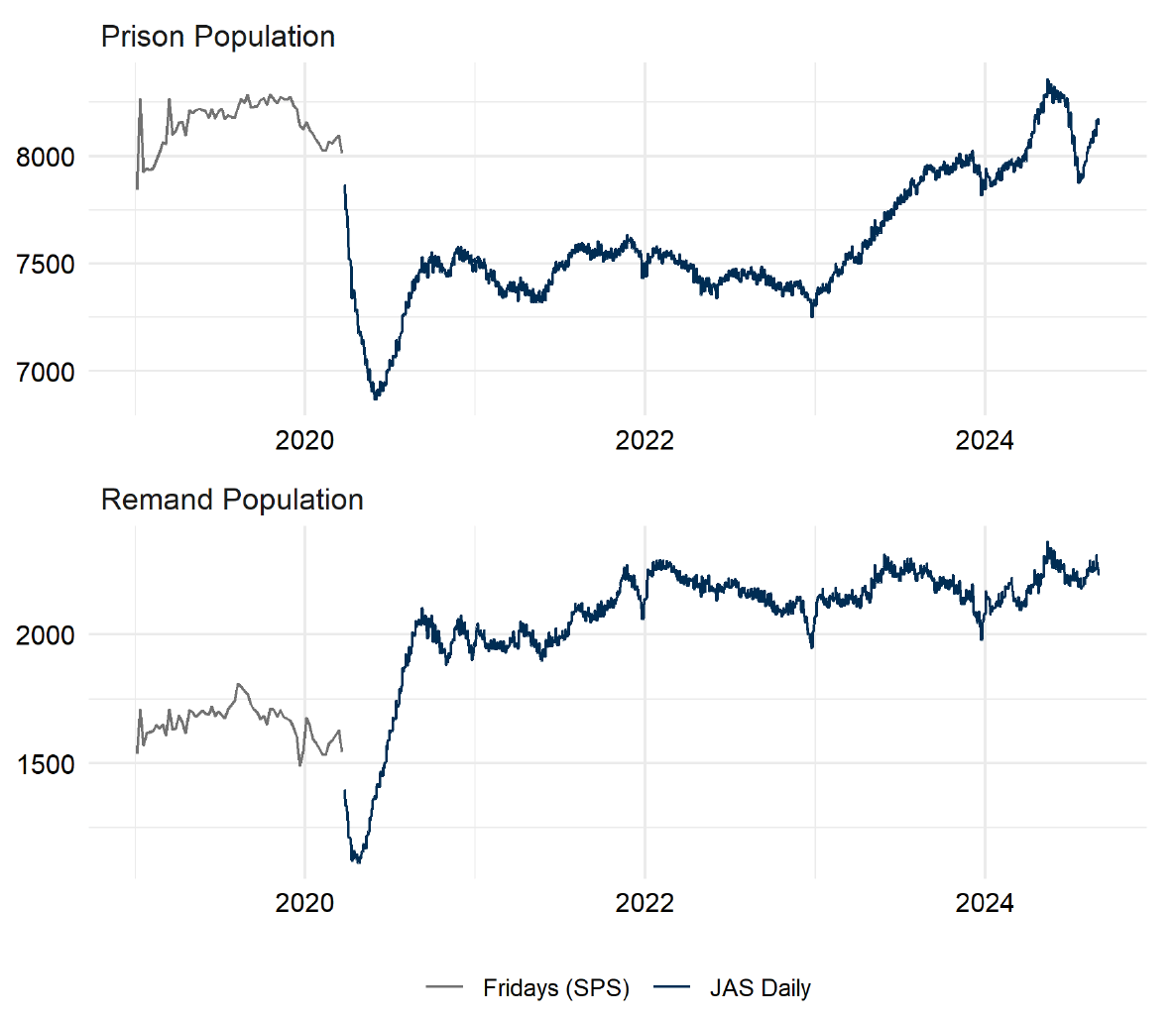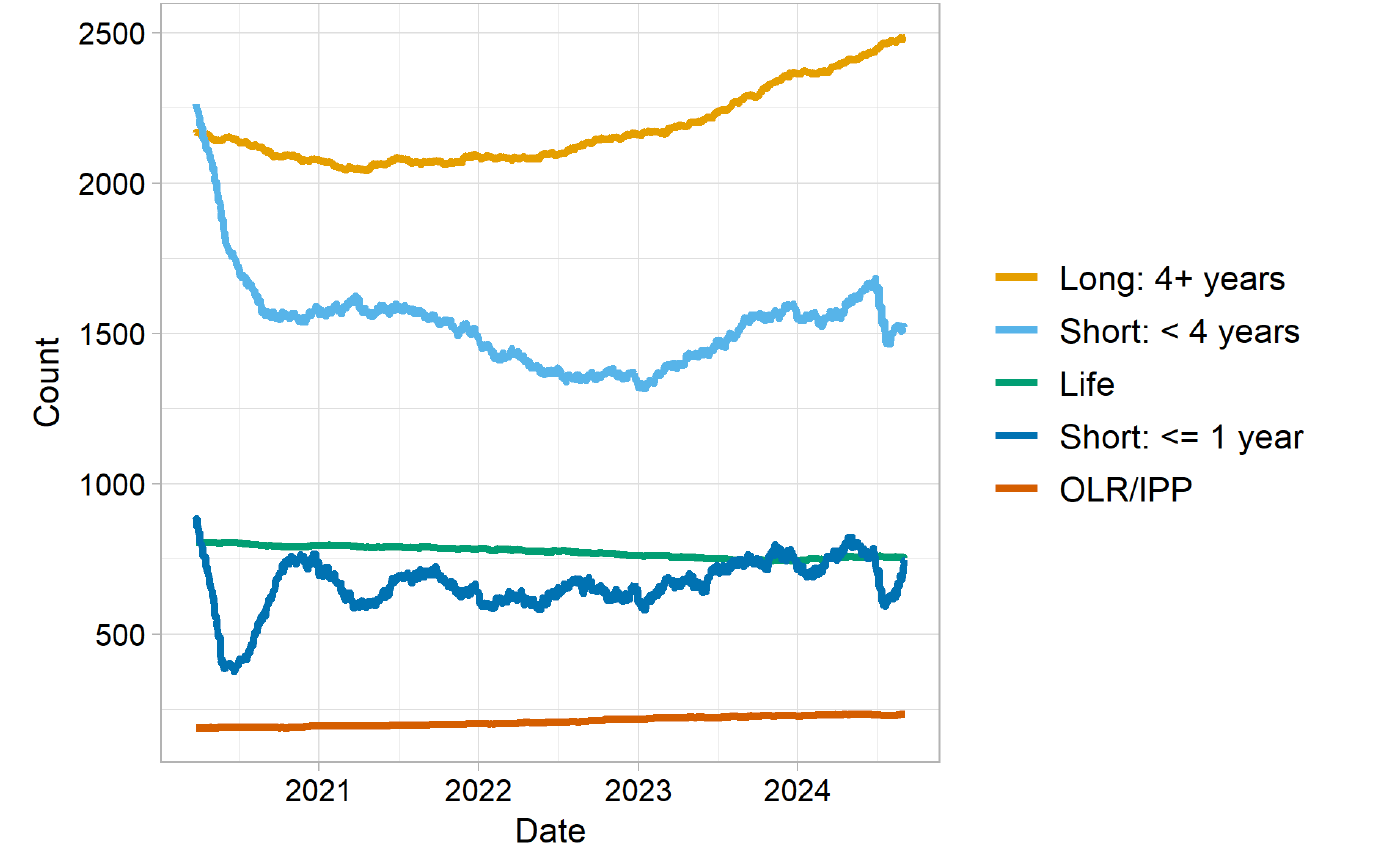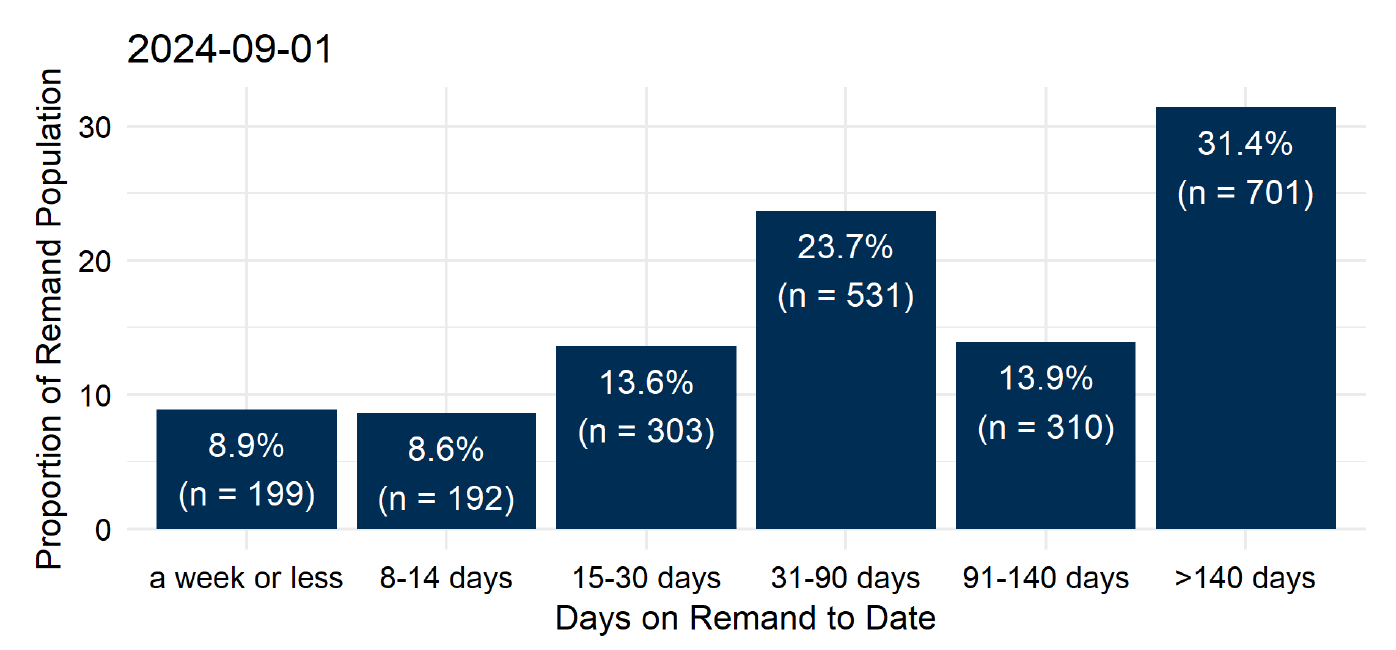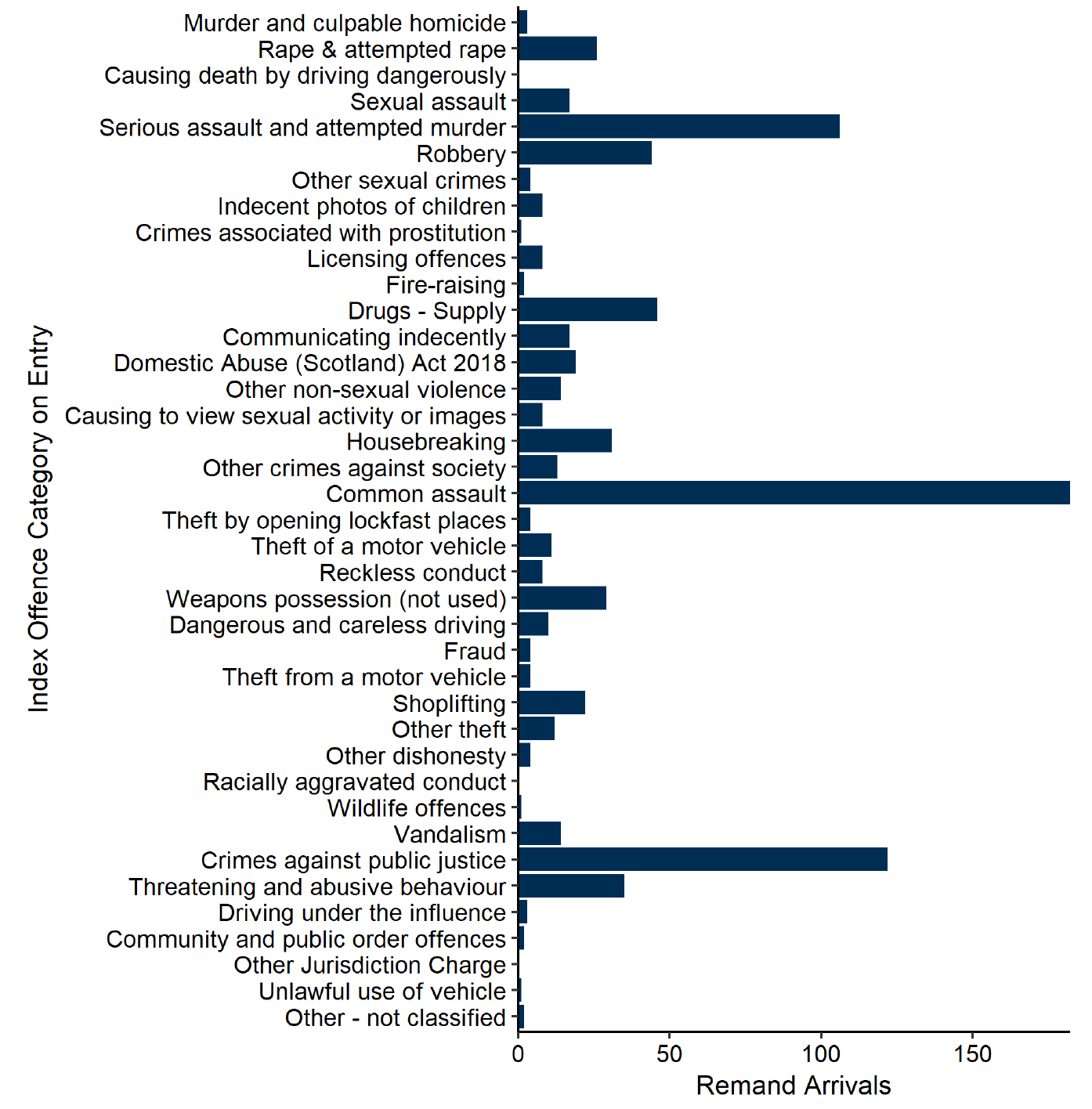Safer Communities and Justice Statistics Monthly Data Report: September 2024
This report contains summary statistics covering a number of important justice and safer communities areas. It is published with up to date statistics every month.
Summary statistics on prisons
* New *
The prison population has risen during 2023 and 2024
In August 2024 (up until the morning of Sunday 1st September 2024):
- the population increased by 188 to 8,151
- 2,236 were on remand: 1,783 (22%) untried & 453 (6%) awaiting sentence. 5,915 (73%) were serving a sentence.
- 58% of arrivals were untried (614 of 1,061), 25% awaiting sentence (263) and 17% sentenced (184)
The overall prison population has exceeded 2019-20 (pre-pandemic) levels. There has been a sustained population increase from 2023, and the number of people held on remand remains at a considerably higher level than pre-pandemic. The reduction in recent months is partly accounted for by the early release of 477 short-term prisoners under Release Of Prisoners (Scotland) Regulations 2023.

Friday population figures published by the Scottish Prison Service, show that the prison population rose from around 7,500 in April 2018 to around 8,300 in November 2019, but fell sharply in the early days of the lockdown in 2020. This was due to a fall in arrivals to custody and the early release of prisoners.
Following a rapid growth in the remand population to September 2020, the prison population stabilised between 7,300 and 7,600 across 2020-22. However, growth across 2023 has led to a higher prison population. The prison population has consistently exceeded 8,000 since the end of March 2024, and reached 8,361 on the 14th May 2024.
Prison population growth was initially driven by a rise in both remand and sentenced arrivals to custody. However, while sentenced and convicted awaiting sentence arrivals continue to trend upwards, untried arrivals to remand have increased over the past few months. See the Scottish Prison Population Projections for more detail on these changing patterns.
The remand population was at its lowest point of 1,114 on 24th April 2020, but grew to over 2,000 by September 2020. Following a period of relative stability, the remand population grew further in the first half of 2023. On 14th May 2024 it peaked at 2,360. People on remand are required by law to be housed separately from sentenced prisoners.
Change in the sentenced prison population varies by sentence length, as shown in the chart below.

The populations serving short term overall sentences (less than 4 years) fell substantially and rapidly during 2020, whereas populations serving long term and indeterminate sentences remained at similar levels to pre-pandemic.
The population serving life sentences has seen a small and gradual decline since 2020, which continued in 2023. The population serving overall sentences of less than or equal to one year and of one to four years increased during 2023. Short-sentenced individuals were those targeted with emergency release, and those are the populations that have seen the greatest fall and rebound in recent months.
Time on Remand to Date
* New *
Among the 2,236 people on remand as of the morning of Sunday 1st September 2024 , the median continuous time spent with this status to date was 79 days.

Note: The remand population includes individuals whose trial has commenced but not concluded, as well as those awaiting commencement of a trial. As a result, the figures referenced above reflect only that an individual has held the same status for an extended period, but do not reflect the relationship between these times on remand and the ongoing court procedure(s) to which they relate.
Remand Arrival Offences
* New *
There were 837 remand arrivals to prison with known offence types in August, awaiting trial or sentence for the following alleged index offences.

Note: Double-counting may occur where an individual arrives, is absent from prison for one or more nights in the month, and then returns before the end of the period. Where an individual has multiple alleged offence types in a single stint, the offence towards the top of the list in the chart is used as the index offence.
Contact
Email: justice_analysts@gov.scot
There is a problem
Thanks for your feedback